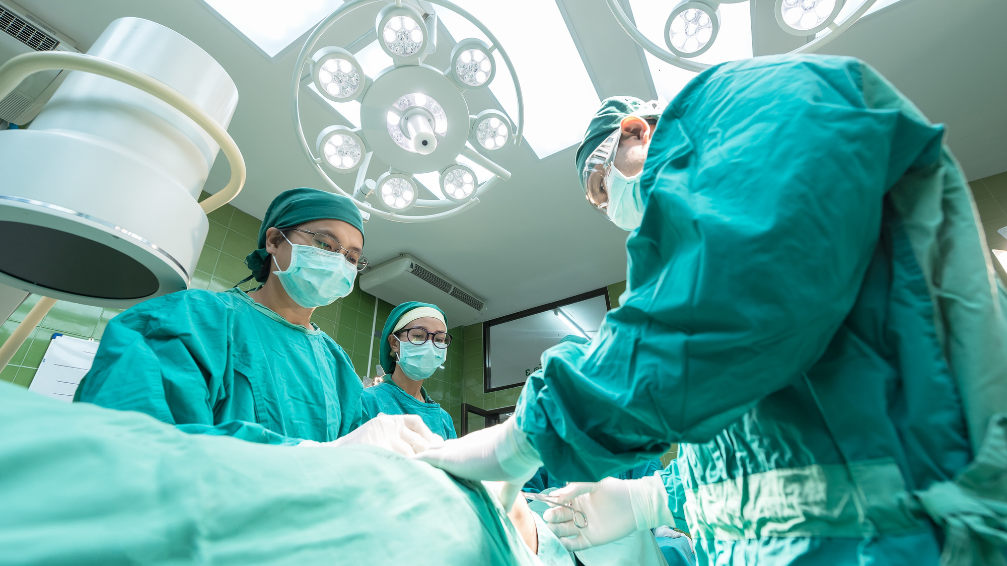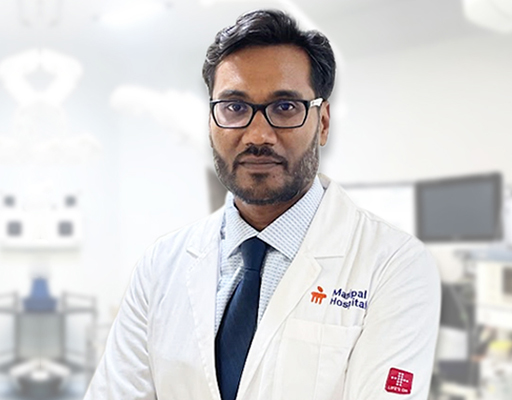
Robotic Colorectal Surgery: An Efficient Surgical Procedure
We believe minimally invasive care is life-enhancing care

Robotic colorectal surgery has become an efficient and go-to surgical procedure for patients suffering from lesions in the colorectal area. The word ‘colorectal’ is a combination of two words— ‘colon’ and ‘rectal.’ However, the term is used in medical science to indicate diseases that affect all organs, such as the colon, small intestine, rectum, and anus, that constitute a person’s lower digestive structure.
One of the most effective treatments for colorectal diseases is surgery. However, the surgery is required only when all other options are exhausted and the medical practitioner recommends it.
Thanks to the advances in the field of medical technology, many surgeons suggest robotic colorectal surgery for patients due to its advantages.
Let’s discuss the procedure in the blog.
What is Colorectal Surgery?
Colorectal surgery is a medical surgical procedure used to treat any type of disease in a patient’s colorectal regions, such as the anus, colon, rectum, etc.. The doctor recommends this type of surgery when the patient experiences issues in the lower abdomen.
The surgery is used chiefly to remove any kind of growth that may be cancerous or non-cancerous.
What is Robotic Colorectal Surgery?
Colorectal surgery can be done in three ways—one is the traditional open way, the second is the laparoscopic method, and the third is by using a robot to help the doctor.
In robotic surgery, the doctor is supported by robotic arms and high-definition cameras to perform the surgery. With a three-dimensional immersive view of the area of surgery, the doctor can perform the surgery with precision and without instrument tremors.
A primary reason to rely on a robot to carry out the surgery is the high amount of precision needed to perform the surgery. And minimally invasive surgical procedure with the help of robotic arms helps the doctor achieve exceptional precision without any complications.
Robotic colorectal surgery has more advantages when compared to other types of surgeries, such as:
-
Minimal cuts are needed to perform the surgery compared to other surgeries.
-
Robotic colorectal surgery wounds heal faster as the cuts are minimal.
-
The digestive system of the patients starts performing faster as the cuts heal faster.
-
Patients undergo much less pain in robotic colorectal surgeries than in other surgeries.
-
Patients can avoid extended hospital stays, which can reduce the financial burden.
-
Robotic arms are more accurate, do not have tremors, and are more efficient than human hands.
How Should A Patient Prepare For Robotic Colorectal Surgery?
As you would prepare for normal surgery, you also need to prepare for robot-assisted surgery. Your doctor will guide you to undergo a few tests and scans to ensure that you indeed need the surgery and are ready for it. Based on the test and scan reports, you will be guided further. Some medications may also be prescribed for you, and you need to take them as directed without fail.
Cleaning your bowel is an essential part of the preparation for robotic colorectal surgery. For this, the doctor may give you laxative medicines to consume, which will clean your lower intestine through multiple motions.
This is essential for the surgery as the doctor will have a clear view of the colon when there is no food or stool in your intestine. As part of the preparation, you also will be asked to avoid solid foods and consume only clear, liquid foods to keep your intestine clear.
In addition to these, you may also need to prepare personally for the surgery. It includes packing and preparing all the essential things for your hospital stay. Ensure that you are arranging for a bystander who can also help you physically. Remember to wear light and comfortable clothes at the hospital and after the surgery. Check with the doctor to arrange any medicines you need outside medical stores. We have all the medications needed for robot-assisted surgery at MH Robotic Surgery Clinic.
What Are The Conditions When A Surgeon Must Perform Colorectal Surgery?
Not all types of colorectal issues need to be treated with surgery. The doctor will advise you to undergo surgery only when there are complications, and the issues cannot be addressed with medication.
The doctor may also check for any suitable treatments for the patient before the surgery is finalized.
However, the following conditions require colorectal surgery:
-
Rectal prolapse, which is when a person’s rectal lining emerges outside of the body.
-
Inflammatory bowel diseases, such as ulcerative colitis, Crohn’s disease, etc.
-
Diverticular disease, where a minor, infected diverticula forms in the colon’s weaker section.
-
Diverse types of polyposis, cancers, and other malignant growth in the colorectal area.
-
Different kinds of fistula, like rectovaginal fistula and colovesical fistula.
-
Common colorectal issues, such as hemorrhoids, anal fissures, abscesses, etc.
-
Ischemia: This is a condition arising due to limited blood supply to the colorectal region.
-
Various complications emerge from chronic constipation, fecal incontinence, etc.
What To Expect On Robotic Colorectal Surgery Day?
Once you have scheduled the robotic surgery for colorectal issues, the doctor will explain everything beforehand about your surgery and procedure. Our doctors at MH Robotic Surgery Clinic will brief you about the surgery and the preparations you need to make before it happens.
To ensure the smooth completion of the surgery, you must adhere to the guidance of the doctor and other nursing staff without fail.
You may be asked to remain empty stomach on the day of the surgery, and the doctor may also give a few pills as needed before the surgery.
The surgery usually takes 1-2 hours to complete, and there will be 2 or 3 minor cuts on your abdomen as the surgery is robot-assisted.
What To Expect After Robotic Assisted Surgery Day?
After undergoing the robotic assisted surgery, your doctor will advise on the precautions you need to take. Follow-up medications will also be provided, which you must take without fail. You may only be required to stay in the hospital for a couple of days after the robotic colorectal surgery.
You will be under observation to learn how your health is progressing after the surgery. You will also be advised to return for regular check-ups to ensure your recovery happens as expected.
Conclusion
If you, any of your family members, or relatives have these medical conditions, talk to your doctor about the same. Diagnosing and treating these medical conditions as quickly as possible is essential for your health. The doctor may suggest medicines or surgery to treat the condition.
Don’t worry about undergoing colorectal surgery if your doctor suggests it as robotic colorectal surgery is minimally invasive and you don’t have to worry about it.
MH Robotic Surgery Clinic offers robotic surgery in Bangalore, including colorectal surgery, and if you need top-notch care and support with your robotic-assisted surgery, we provide all the medical assistance and guidance. Talk to us today to learn about our robotic surgery for colorectal complications.



